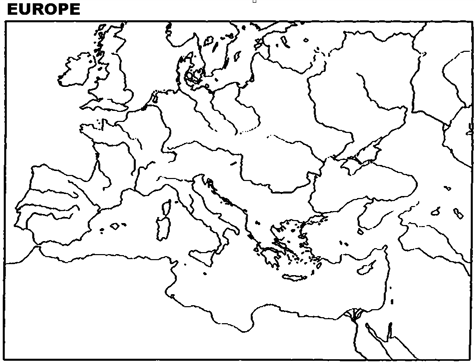Exam 3: Intellectual Transformation: the Scientific Revolution and the Age of Enlightenment
Exam 1: Transition to the Modern Age: Renaissance and Reformation102 Questions
Exam 2: Political and Economic Transformation: National States, Overseas Expansion, Commercial Revolution84 Questions
Exam 3: Intellectual Transformation: the Scientific Revolution and the Age of Enlightenment86 Questions
Exam 4: The Era of the French Revolution: Affirmation of Liberty and Equality92 Questions
Exam 5: The Industrial Revolution: The Transformation of Society79 Questions
Exam 6: Thought and Culture in the Early Nineteenth Century82 Questions
Exam 7: Surge of Liberalism and Nationalism: Revolution, Counterrevolution, and Unification78 Questions
Exam 8: Thought and Culture in the Mid-Nineteenth Century: Realism, Positivism, Darwinism, and Social Criticism86 Questions
Exam 9: Europe in the Late Nineteenth Century: Modernization, Nationalism, Imperialism93 Questions
Exam 10: Modern Consciousness: New Views of Nature, Human Nature, and the Arts78 Questions
Exam 11: World War I: The West in Despair83 Questions
Exam 12: An Era of Totalitarianism88 Questions
Exam 13: World War II: Western Civilization in the Balance56 Questions
Exam 14: Europe After World War II: Recovery and Realignment, 1945-198963 Questions
Exam 15: The Troubled Present55 Questions
Select questions type
Key Terms Instructions: Please define the following key terms. Show Who? What? Where? When? Why Important?
heliocentric theory
(Short Answer)
4.8/5  (40)
(40)
Key Terms Instructions: Please define the following key terms. Show Who? What? Where? When? Why Important?
Mary Wollstonecraft
(Essay)
4.9/5  (30)
(30)
Key Terms Instructions: Please define the following key terms. Show Who? What? Where? When? Why Important?
Candide
(Essay)
4.9/5  (35)
(35)
The philosophes' concern for liberty did not lead them to embrace democracy with the notable exception of
(Multiple Choice)
4.8/5  (32)
(32)
In what ways was the Enlightenment a threat to the old regimes in Europe?
(Essay)
4.8/5  (39)
(39)
____ searched for an absolute truth that could serve as the first principle of knowledge.
(Multiple Choice)
4.7/5  (38)
(38)
Key Terms Instructions: Please define the following key terms. Show Who? What? Where? When? Why Important?
"the century of genius"
(Short Answer)
4.7/5  (42)
(42)
Key Terms Instructions: Please define the following key terms. Show Who? What? Where? When? Why Important?
Montesquieu
(Essay)
4.8/5  (34)
(34)
Key Terms Instructions: Please define the following key terms. Show Who? What? Where? When? Why Important?
Discourse on Method
(Essay)
5.0/5  (32)
(32)
The element of the American political system that aligns most with Montesquieu is
(Multiple Choice)
4.8/5  (46)
(46)
Key Terms Instructions: Please define the following key terms. Show Who? What? Where? When? Why Important?
experimental physics
(Short Answer)
4.8/5  (30)
(30)
Please use this outline map of Europe to answer the question(s).
 - On a blank map of Europe, locate the following areas where there was considerable Enlightenment disputation: Paris, Berlin, Moscow, Budapest, London, and the Hague.
- On a blank map of Europe, locate the following areas where there was considerable Enlightenment disputation: Paris, Berlin, Moscow, Budapest, London, and the Hague.
(Not Answered)
This question doesn't have any answer yet
Key Terms Instructions: Please define the following key terms. Show Who? What? Where? When? Why Important?
Platonic ideas
(Essay)
4.8/5  (37)
(37)
Voltaire attributed many of the ills of French society to which of the following?
(Multiple Choice)
4.9/5  (31)
(31)
Which of the following ended the medieval division of the cosmos into higher and lower worlds with different laws operating in each realm?
(Multiple Choice)
4.7/5  (27)
(27)
It was natural that the Enlightenment would grow directly from the Scientific Revolution because of all of the following EXCEPT
(Multiple Choice)
4.8/5  (40)
(40)
Showing 61 - 80 of 86
Filters
- Essay(0)
- Multiple Choice(0)
- Short Answer(0)
- True False(0)
- Matching(0)